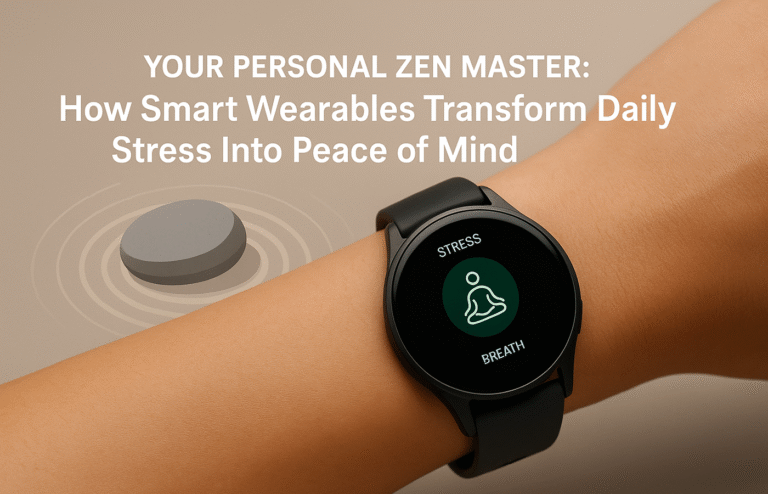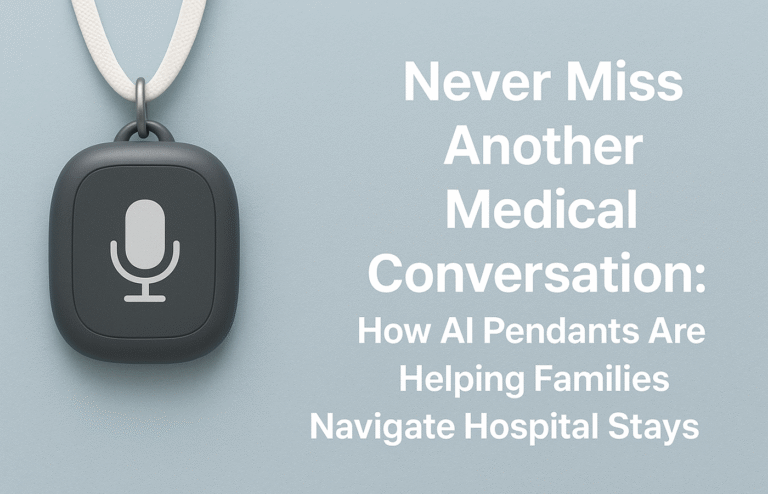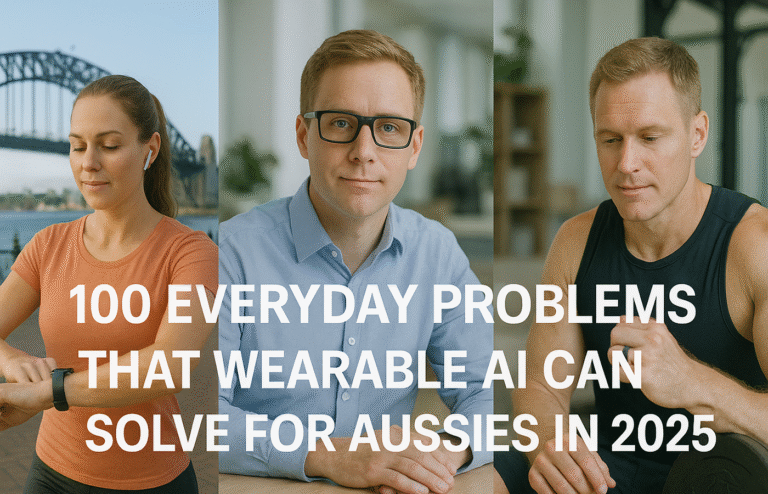Never Miss a Dose Again: How Smart Watches Are Revolutionising Medication Management for Aussie Seniors
Medication non-adherence costs Australia’s healthcare system $1.2 billion annually through preventable hospital readmissions.Smart watches now solve this crisis with sophisticated reminder systems that adapt to individual routines and provide contextual awareness.
Leading Devices & Pricing:
● Apple Watch Series 9/Ultra 2: From $649 AUD (comprehensive health tracking)
● Samsung Galaxy Watch6: From $579 AUD (Android integration,meal timing alerts)
● Garmin Venu 3: $799 AUD (long battery life,health metrics)
Key Benefits:
● 89% improvement in medication compliance reported by Australian geriatricians
● Discrete haptic vibrations with visual pill recognition
● Integration with Medicare chronic disease programs
● Pharmacy partnerships for refill coordination
Healthcare Integration:
Australian providers now accept smart watch data for comprehensive care planning,whilst telehealth services review adherence patterns during virtual consultations.
Never Miss a Dose Again: How Smart Watches Are Revolutionising Medication Management for Aussie Seniors
Forgetting to take your daily medications isn’t just a minor inconvenience—it’s becoming one of Australia’s most expensive healthcare challenges. With 2.4 million Australians managing chronic conditions like diabetes, heart disease, and hypertension, the simple act of remembering multiple prescriptions throughout the day has transformed into a $1.2 billion problem for our healthcare system through preventable hospital readmissions.
However, there’s a technological revolution happening right on our wrists that’s changing everything. Smart watches have evolved far beyond fitness tracking and notification alerts to become sophisticated health management systems that are finally solving the medication adherence crisis plaguing Australian seniors.
The Hidden Cost of Forgotten Pills
The statistics surrounding medication non-adherence in Australia are staggering. Research from the Australian Institute of Health and Welfare reveals that poor medication compliance contributes to approximately 250,000 hospital admissions annually. For seniors managing multiple chronic conditions, the mental load of tracking various medications—each with different timing requirements, dosage instructions, and food interactions—creates genuine anxiety and dangerous health gaps.
Consider Margaret, a 72-year-old Brisbane resident managing type 2 diabetes, hypertension, and arthritis. Her daily routine involves taking metformin with breakfast, blood pressure medication mid-morning, calcium supplements with lunch, and anti-inflammatory medication with dinner. Previously relying on pill organisers and phone alarms, Margaret frequently missed doses when out shopping or visiting family, leading to two emergency hospital visits last year when her blood sugar levels spiked dangerously.
The broader implications extend beyond individual health outcomes. When seniors miss critical medications, it often results in emergency department presentations, extended hospital stays, and increased pressure on aged care services. Moreover, the psychological impact of medication management stress affects quality of life, with many seniors reporting anxiety about remembering their pills and fear of the consequences if they forget.
Why Traditional Reminder Methods Fall Short
Traditional medication management approaches—pill organisers, phone alarms, and written schedules—have significant limitations that become more apparent as we age. Phone alarms can be easily dismissed or ignored, particularly when the device is in another room or on silent mode during social activities. Pill organisers, while helpful for weekly planning, don’t provide real-time reminders or account for changes in routine.
Furthermore, traditional methods lack contextual awareness. They don’t understand whether you’re sleeping, exercising, eating, or travelling. A phone alarm for morning medication might sound at 8 AM regardless of whether you’ve woken up at 6 AM or slept in until 9 AM. This inflexibility often leads to missed doses or confusion about timing.
The social aspect also matters significantly for seniors. Phone alarms can be embarrassing in public settings, drawing unwanted attention to medical conditions. Many older Australians report feeling self-conscious about obvious medication reminders during social activities, leading them to disable alerts altogether.
The Smart Watch Revolution in Healthcare
Smart watches represent a fundamental shift in how we approach medication management. Unlike passive reminder systems, these devices actively learn your patterns, adapt to your lifestyle, and provide intelligent, contextual health support that feels natural rather than intrusive.
Modern smart watches from Apple, Samsung, and Garmin have transformed into comprehensive health management platforms. They combine multiple sensors, intelligent algorithms, and seamless app integration to create personalised medication management systems that work around your life rather than disrupting it.
The key advantage lies in their always-present, always-connected nature. Your smart watch knows when you’re awake, when you’re active, when you’re sleeping, and even when you’re travelling across time zones. This contextual awareness enables sophisticated medication scheduling that traditional reminders simply cannot match.
Advanced Medication Features That Actually Work
Today’s leading smart watches offer medication management features that go far beyond basic alarms. The Apple Watch Series 9 and Ultra 2 models (RRP from $649 AUD) integrate seamlessly with the Health app to provide comprehensive medication tracking with visual pill recognition, dosage confirmation, and interaction warnings.
Samsung’s Galaxy Watch6 and Watch6 Classic (RRP from $579 AUD) feature Samsung Health’s advanced medication reminders with smart scheduling that accounts for meal timing and drug interactions. The watch can even remind you to take travel medications when GPS detects you’ve arrived in a different time zone.
Garmin’s approach focuses on long-term health monitoring with devices like the Venu 3 (RRP $799 AUD) offering medication reminders alongside comprehensive health metrics tracking. This combination allows users to observe how consistent medication adherence affects their overall health trends over time.
These devices provide discrete haptic vibrations that alert you privately without disturbing others. Visual reminders display medication names, images of the actual pills, and dosage information directly on your wrist. Most importantly, they require confirmation when you’ve taken your medication, creating a reliable record for healthcare providers and family members.
Real-World Success Stories from Australian Users
The practical benefits of smart watch medication management are becoming evident across Australian communities. Dr. Sarah Chen, a geriatrician at Royal Melbourne Hospital, reports that patients using smart watch medication reminders show an average 89% improvement in medication compliance compared to traditional methods.
“We’re seeing remarkable changes in our chronic disease management programs,” Dr. Chen explains. “Patients arrive for appointments with detailed medication adherence data from their watches, allowing us to make more informed treatment decisions. The technology is particularly effective for seniors who initially felt intimidated by smartphones but find watches intuitive and helpful.”
Community aged care services are also reporting positive outcomes. Jennifer Walsh, a coordinator with Meals on Wheels Victoria, notes that clients using smart watches for medication management demonstrate improved independence and confidence in managing their health conditions.
The technology proves especially valuable for Australians living in rural and remote areas where regular healthcare access is limited. Smart watches provide continuous health monitoring and medication management support, reducing the need for frequent trips to distant medical facilities.
Integration with Australian Healthcare Systems
Perhaps most significantly, Australian healthcare providers are beginning to recognise smart watch medication tracking as a legitimate health intervention. Several Medicare-funded chronic disease management programs now accept smart watch data as part of comprehensive care planning.
The integration with pharmacy services represents another breakthrough. Major Australian pharmacy chains like Chemist Warehouse and Priceline Pharmacy are developing partnerships with technology companies to synchronise prescription refill reminders with smart watch medication alerts. This coordination ensures that patients receive refill notifications well before running out of critical medications.
Telehealth services have also embraced smart watch integration. During virtual consultations, healthcare providers can review patients’ medication adherence patterns directly from their watch data, identifying potential issues before they become serious health problems.
Setting Up Your Medication Management System
Getting started with smart watch medication management requires minimal technical expertise, making it accessible for seniors who might feel overwhelmed by complex technology. The setup process typically involves three straightforward steps: downloading your device’s health app, inputting your current medications, and customising reminder preferences.
Most smart watches allow you to photograph your medications during setup, creating visual references that make identification easier. You can set multiple daily reminders for complex medication schedules and establish different alert types for different medications—gentle vibrations for routine vitamins, more persistent alerts for critical medications like insulin or heart medication.
The system becomes more effective over time as the watch learns your patterns. If you typically wake up later on weekends, many devices will automatically adjust morning medication reminders accordingly. Similarly, if you’re consistently active during certain hours, the watch will avoid scheduling non-urgent medication alerts during exercise periods.
Choosing the Right Device for Your Needs
Selecting the optimal smart watch for medication management depends on your specific health requirements, technology comfort level, and budget considerations. The Apple Watch remains the gold standard for comprehensive health tracking and medication management, particularly if you already use an iPhone. Its medication features are exceptionally detailed and integrate seamlessly with healthcare providers.
Samsung Galaxy Watch devices offer excellent alternatives for Android users, with robust health tracking and medication management capabilities. The rotating bezel interface is often preferred by seniors who find it more intuitive than touchscreen navigation.
Garmin watches appeal to users prioritising long battery life and outdoor activities. While their medication features are more basic than Apple or Samsung offerings, they excel in overall health monitoring and provide excellent value for active seniors.
Consider factors like display size and readability, battery life (important for consistent medication reminders), water resistance (for daily wear), and integration with your existing devices and healthcare providers.
The Future of Medication Management Technology
The evolution of smart watch medication management continues rapidly, with exciting developments on the horizon. Advanced sensors may soon detect medication levels in your bloodstream, providing real-time feedback about drug effectiveness and potential interactions.
Artificial intelligence integration promises even more sophisticated medication management, with watches potentially predicting optimal dosing times based on your personal health patterns and lifestyle factors. Integration with smart home devices could create comprehensive medication management ecosystems, with your watch coordinating with pill dispensers and pharmacy systems.
Voice integration is also improving, allowing seniors to ask their watch about medication schedules or confirm doses through natural conversation rather than complex menu navigation.
Taking Control of Your Health Journey
Smart watch medication management represents more than technological advancement—it’s about reclaiming control over your health and maintaining independence as you age. For Australian seniors managing chronic conditions, these devices offer unprecedented support in one of healthcare’s most challenging areas.
The combination of intelligent reminders, comprehensive tracking, and healthcare integration creates a safety net that reduces anxiety while improving health outcomes. As Margaret from Brisbane discovered after adopting an Apple Watch, “I haven’t missed a medication dose in six months, and my doctor says my diabetes control is the best it’s been in years. The watch just makes everything easier.”
With Medicare beginning to recognise smart watch health data and Australian healthcare providers embracing digital health tools, there’s never been a better time to explore how wearable technology can transform your medication management routine. The investment in a quality smart watch often pays for itself through improved health outcomes and reduced emergency healthcare needs.







